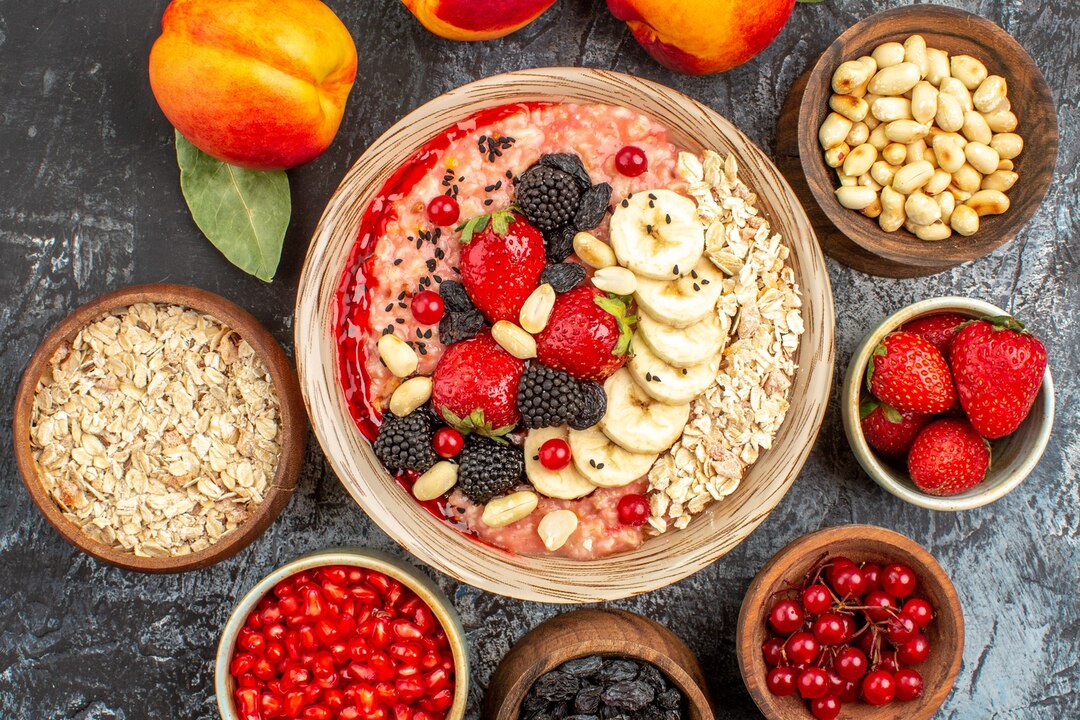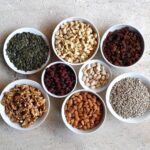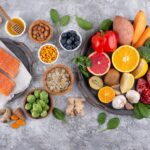Liver health is crucial for overall well-being. The liver plays a central role in detoxifying the body, metabolizing nutrients, and regulating various essential functions. An unhealthy liver can lead to conditions such as liver disease and metabolic disorders. Although we cannot control all risk factors for liver disease, certain foods and drinks can help promote liver health.
In this article, we explore the best foods and drinks for liver health, highlighting their beneficial effects, as well as foods to avoid to help maintain optimal liver function.
Top Foods and Drinks for Liver Health
- Coffee
Coffee is not only a popular pick-me-up, but research shows it may also be beneficial for liver health. A 2021 study analyzed data from over 494,000 people and found that all types of coffee—whether instant, ground, or decaffeinated—were associated with lower risks of chronic liver disease. Ground coffee, in particular, had the most significant effect. Drinking 3-4 cups daily can offer the maximum protective effect, potentially due to active compounds in coffee. Regular coffee consumption may also help protect liver enzyme levels in individuals with and without liver disease. - Oatmeal
Oats are an excellent source of fiber, which is essential for digestion. Specifically, the beta-glucans found in oats may benefit the liver by reducing fat buildup. Although further research is needed to confirm the liver-protective effects of oats in humans, studies have shown that beta-glucans may help reduce liver fat in animal models. - Green Tea
Green tea is packed with antioxidants and polyphenols that may help protect the liver from damage. A 2020 review of studies linked moderate green tea consumption to lower levels of liver enzymes associated with liver injury. However, it’s important to note that excessive intake of green tea extract may cause liver issues in rare cases. - Garlic
Garlic is more than just a flavor enhancer; it may also be beneficial for liver health. A 2020 clinical trial found that garlic powder significantly reduced fat buildup and other risk factors in individuals with nonalcoholic fatty liver disease (NAFLD). Additionally, raw garlic may reduce the risk of liver cancer, as suggested by a 2019 study. - Berries
Dark berries such as blueberries, raspberries, and cranberries are rich in polyphenols, which may help protect the liver. Animal studies have shown that these antioxidants reduce liver damage and inflammation. While human research is still needed, the findings so far indicate that berries can play a role in liver health. - Grapes
Grapes, particularly their skin and seeds, contain compounds that may alleviate symptoms of liver problems such as inflammation and fat buildup. A 2022 study showed that these compounds helped reduce liver enlargement in rats. Eating whole, seeded grapes or taking grape seed extract supplements can help incorporate these benefits into your diet. - Grapefruit
Grapefruit contains antioxidants like naringin and naringenin, which may protect the liver from injury and reduce inflammation. A 2019 study found that naringin helped prevent alcohol-induced liver damage. However, grapefruit can interact with some medications, so it’s important to consult with a doctor before adding it to your diet. - Prickly Pear
Prickly pear fruit and juice may offer liver health benefits, according to some animal studies. While research on humans is still in the early stages, the potential for prickly pear as a liver-protective food is promising. - Plant Foods
Plant-based foods such as whole grains, vegetables, nuts, and legumes are associated with a lower risk of NAFLD and liver fat accumulation. A 2023 review found that plant-based diets are beneficial for liver health, making these foods a vital part of a balanced diet. - Fatty Fish
Fatty fish like salmon, mackerel, and sardines are rich in omega-3 fatty acids, which help reduce inflammation and prevent fat buildup in the liver. Regular consumption of fatty fish or fish oil supplements may lower the risk of liver disease and support overall liver function. - Nuts
Nuts, including almonds, walnuts, and pistachios, contain unsaturated fats, antioxidants, and vitamin E, which help protect the liver from oxidative stress and inflammation. Adding nuts to your diet may lower the risk of NAFLD and promote liver health. - Olive Oil
While excessive fat can harm the liver, healthy fats like those found in olive oil can be beneficial. A 2019 study suggested that olive oil, a key component of the Mediterranean diet, helps reduce oxidative stress and improves liver function due to its high content of unsaturated fatty acids.
Foods to Avoid for Liver Health
While certain foods can protect the liver, others can burden it, especially when consumed in excess. Here are some foods to avoid:
- Fatty Foods: Fried foods, fast food, and snacks like chips can overload the liver with unhealthy fats.
- Starchy Foods: Highly processed breads, pastas, cakes, and other refined starches lack fiber and can contribute to liver fat accumulation.
- Sugar: High-sugar foods like baked goods, candies, and sugary cereals may increase the stress on the liver and contribute to fat buildup.
- Salt: Excessive salt intake can harm the liver. Opt for low-sodium options and reduce the consumption of processed meats, canned foods, and salty snacks.
- Alcohol: Alcohol is a well-known liver toxin. Reducing or eliminating alcohol consumption can significantly lower the risk of liver damage.
Maintaining liver health is essential for overall wellness, and making informed dietary choices can significantly contribute to a healthy liver. Incorporating liver-friendly foods such as coffee, oats, garlic, and berries while avoiding fatty, processed, and sugary foods can help protect the liver from damage and reduce the risk of liver disease.
Always consult a healthcare professional for personalized advice, especially if you have existing liver conditions. A balanced diet, rich in plant-based foods and healthy fats, along with regular medical checkups, can go a long way in ensuring your liver remains in optimal condition for years to come.








